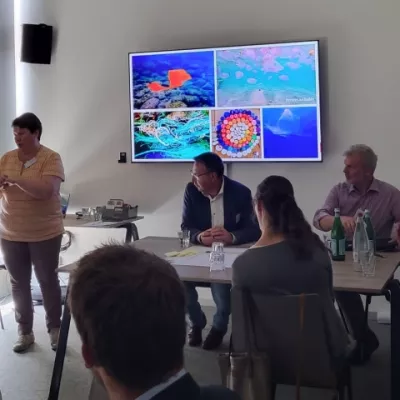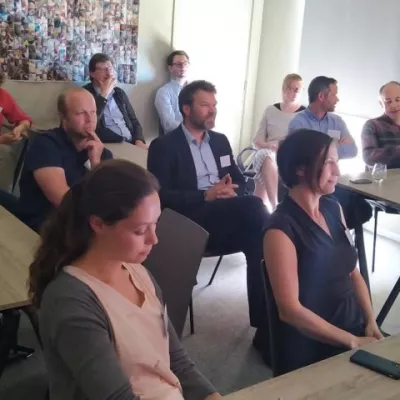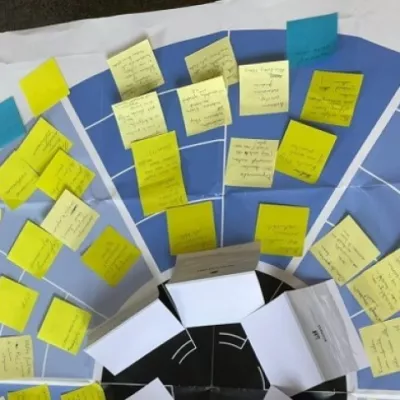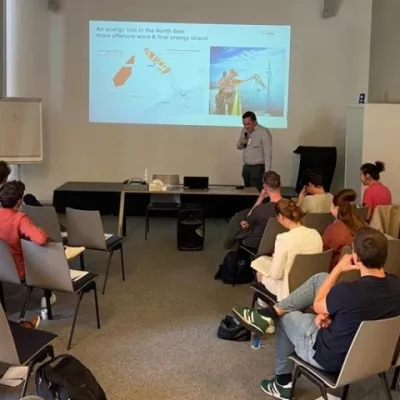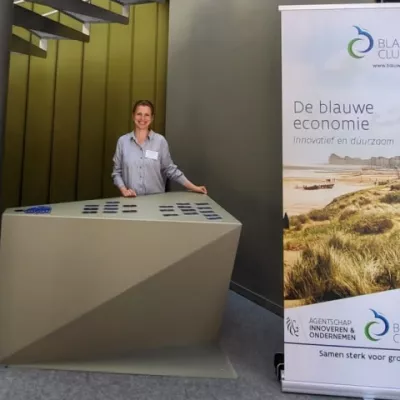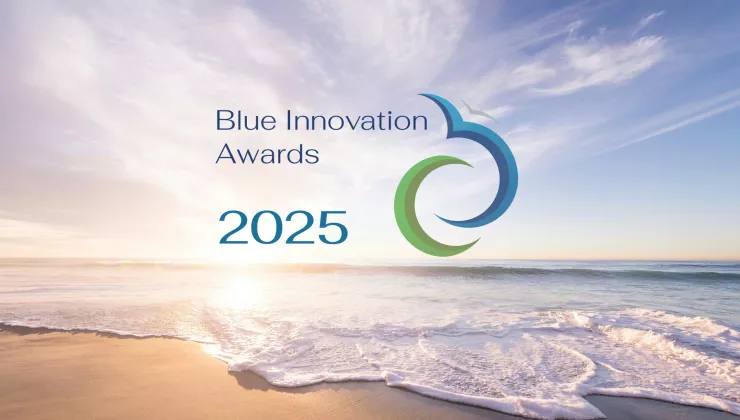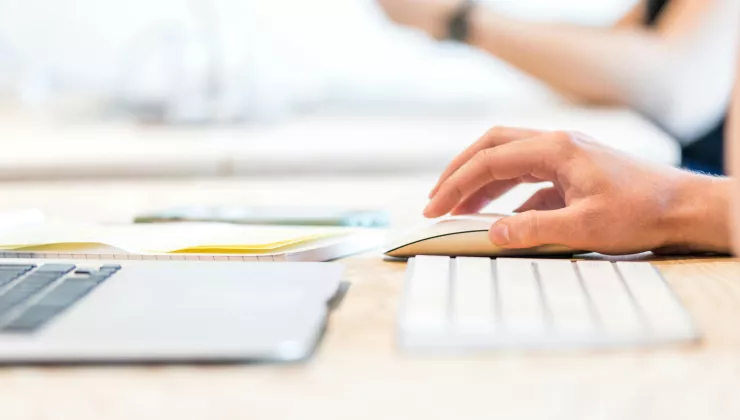Looking back on a successful Blue Sessions Day
On Friday, June 3, 2022, the first Blue Sessions Day took place in Zebrastraat (Ghent). During this event, three substantive themes were discussed in more detail, namely Nature Inclusive Design, Smart Shipping and Plastics.
We had the pleasure of welcoming more than 60 participants to Zebrastraat Ghent. We made it a productive day, and managed to identify several challenges and opportunities for the future.
A brief report of the three sessions can be found below.
Findings of the first Blue Sessions Day
Nature Inclusive Design
Today, Flemish companies are among the world leaders in the development and construction of wind farms thanks to the pioneering work they performed during the early years of wind energy. If we want to maintain this position in the future, we must invest even more in innovation and strengthen our expertise in nature-inclusive design.
At the start of the session, we first took a moment to consider what is exactly meant by nature-inclusive design (NID). The interactive discussion showed that this is a very dynamic issue. A lot is already possible at the hydraulic and technical level, but it is a fact that nature restoration remains very expensive.
From the perspective of the industry, there is not only a need for incentives to put NID solutions into practice, but the government must also formulate clear objectives and ambitions, for example in the field of oyster reefs. There is also a role for knowledge institutions to build up knowledge about the net positive impact of NID.
Everyone present assumes that NID is not a hype, but a definitive trend. That is why Blue Cluster is taking the initiative to write a white paper about how we can embed NID in the design process and perhaps also in the company philosophy and thus achieve an effective implementation of NID.
Smart Shipping
During an interactive workshop, we took a closer look at the needs of shipping and looked at how smart applications can provide an answer to this. In this context, the smart shipping roadmap of De Blauwe Cluster mentions the implementation of data communication, IoT, big data management, artificial intelligence, block chain technology, etc., as well as the development of autonomous vessels.
The central question we asked ourselves was: 'How can Flanders play a leading role in smart and autonomous shipping?'. With smart and autonomous shipping we refer to advanced, digitized and autonomous maritime/nautical activities in ports and offshore. We formulated 6 domains with which we started working.
The biggest challenges in the short term are technological in nature (data and networks). Setting up activities around data sharing, (shared) standards, cyber security and connectivity is apparently an important action point. The specific sensor technology required to achieve autonomous shipping is also essential.
We concluded the session with a keynote by Jean-Baptiste Merveille (FPS Mobility, DG Shipping), who elaborated on the regulatory framework for autonomous navigation.
Plastics
After an explanation of the problem of plastics in ocean pollution, we considered the question why companies and organizations remove plastic while there is no extensive regulation and the opportunities for a business case seem small.
It is currently unclear who is responsible for the plastic that ends up in rivers and canals. Furthermore, the variability in size and composition and the degradation and 'contamination' of the substance to be treated remain bottlenecks that make the economic valorisation of processing more difficult.
Current projects
Dr. Gert Everaert started with an explanation of the Pluxin project and some initial results. Ilse Christiaens confirmed the bottlenecks from her experience in processing plastics and explained some start-up projects.
Niko Fierens and Boudewijn Decrop clarified the setup and status of the DeMARC project, which aspires to a scientifically based marine and river cleaner. Finally, Pieter Van Bouwel explained the intention and project status of the PoAB to start with automated floating debris detection and operational drones in 2023.
Workshop
We ended the session with a workshop set up by An Cosaert, who tried to identify the respective professional importance for each participant of the various sustainable development goals related to plastic by using the six-hat method (6 thinking hats of De Bono). In this way (un)expected crossovers arise that can indicate a certain importance, and thus an opportunity for a possible business model.
Goals that returned were “clean water and sanitation”, “clean energy”, “responsible consumption” and “life underwater”. In general, it has been repeatedly stated that the problem remains very complex and that clear regulation is needed, which can contribute to the creation of innovative solutions for disposal and treatment, which are also economically viable.
Acknowledgements and a look ahead
We would like to wholeheartedly thank our speakers for their participation in this successful event and their relevant content contributions.
In addition, we would also like to thank all participants for sharing their experience, insights and knowledge with us and each other.
We have planned another Blue Session in the autumn, which will focus on aquafarming. Keep an eye on our website for more information.
